Arts, Humanities and Social Sciences
Composition of the Council for the Field of Science – Arts, Humanities and Social Sciences
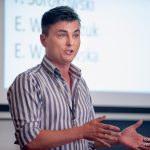
Dr hab. Maciej Karwowski, prof. UWr – doctor habilitated, professor of the University of Wrocław. He graduated in pedagogy from the Academy of Special Education in 2002, and two years later in sociology and psychology from the University of Warsaw. He was awarded the degree of doctor in the field of ability pedagogy in 2004 and habilitation in the same field in 2010 from the Academy of Special Education in Warsaw. He currently heads the Department of Creative Psychology at the Institute of Psychology, University of Wrocław. His scientific interests include the psychology of creativity and education and psychometrics and the methodology of social research. He is the author of over 160 scientific articles on psychology and pedagogy. He is the editor or author of 12 books in the same field, including a monograph published in 2017 entitled “The Creative Self: Effects of beliefs, self-efficacy, mindset, and identity.”, San Diego, CA: Academic Press. He has been the chairman of several review panels at the National Science Centre in the field of social sciences. He has also served as deputy editor-in-chief of the Journal of Creative Behavior – the oldest scientific journal on the psychology of creativity, member of editorial boards: Creativity Research Journal, Psychology of Aesthetics, Creativity, and the Arts, Thinking Skills and Creativity, Review of General Psychology, Journal of Creativity and Business Innovation and Frontiers in Psychology. Co-editor-in-chief of the Open Access journal Creativity: Theories-Research-Application.
Dr Joanna Dreszer will deputise for Dr Adrian Wojcik from 1 September 2023 to 31 January 2024.
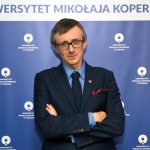
Dr Adrian Wójcik – Vice-Chair of the Scientific Council for HS, sociologist and social psychologist, Vice-Dean for Research and Internationalisation of the Faculty of Philosophy and Social Sciences, NCU. He was awarded the title of master and the degree of doctor at the University of Warsaw. In his doctoral thesis, he analyzed the relationship between the content of social memory of the Jewish minority and contemporary intergroup relations. Currently, his main research area involves conservation psychology. He focuses on the relationship between pro-environmental attitudes and behaviours, and more general socio-political beliefs (political ideology, various forms of identification, values). A collaborator of non-governmental environmental organisations for which he conducts workshops on pro-environmental communication. He has been a participant of numerous trainings on the analysis of intercultural data in social sciences (European Social Survey, GESIS, SERISS) and is a member of the editorial board of the Social Psychological Bulletin published as an Open Access journal.
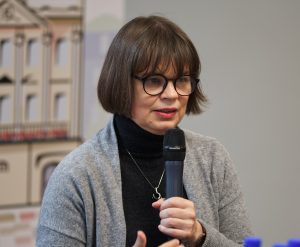
Prof. dr hab. Joanna Wojdon – associate professor at the Department of Methodology of Teaching History and Civic Education, Institute of History, University of Wrocław, a Fulbright alumna and the Kościuszko Foundation grant holder, a board member of the International Society for History Didactics and managing editor of its Yearbook, a member of the steering committee of the International Federation for Public History – a journal published since 1944 by the Polish American Historical Association. She is a member of the Presidium of the Committee on Migration Research of the Polish Academy of Sciences, a member of the Interdepartmental Commission for Diaspora Research of the Polish Academy of Arts and Sciences and a co-author of the first history e-textbook in Poland. She has developed the first MA program in public history in Poland. Other areas of her interest include teaching history through entertainment, the influence of politics and propaganda on education, especially in the People’s Republic of Poland, and the history of the Polish American community after World War II. The author of six monographs and seven edited works on these issues.
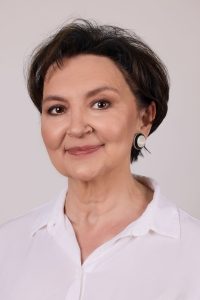
Dr hab. Ewa Dahlig-Turek, prof. IS PAN – Director of the Institute of Art of the Polish Academy of Sciences, musicologist, researcher of Polish folk music. She was Vice-President of the Polish Association of Research Managers and Administrations between 2005-2009. A member of the International Council for Traditional Music (chair of the Polish National Committee of ICTM) and European Seminar in Ethnomusicology. A reviewer of grant applications at the Australian Research Council (expert assessor of international standing since 1997), Israel Science Foundation (since 2001) and Foundation for Polish Science. Between 2008-2013, a member of the Standing Committee for the Humanities at the European Science Foundation in Strasburg. She was a member of the Committee for the Evaluation of Scientific Units (2011-2019) and Chair of the Commission of the Committee for the Evaluation of Scientific Units for the Group of Humanities and Social Sciences (2012-2019). She has been a member of the International Advisory Board at the Institute of Ethnology of the Czech Academy of Sciences since 2019. Her main areas of interest include issues of folk music culture in Poland with particular emphasis on folk instruments and problems of eurhythmics, computer-aided analysis of the rhythm “Polish dances” in Scandinavia. Her research has led to the reconstruction of forgotten Polish string instruments – the Bilgoray suka and the Płock fiddle. Since 2015, she has been implementing a pioneering project of the electronic edition of folk music recordings from the Oskar Kolberg collection in the Music Information Retrieval mode.

Dr hab. Łukasz Młyńczyk – research and teaching staff member at the Faculty of Political Science and International Studies University of Warsaw. He specializes in research on social research methodologies, metatheories and policy theory. He is the author of two scientific monographs “Between Creativity and Idleness. Politicalness of Two Ideal Types” (2015); “Religious policy. Perspective of the European Union” (2018 co-author) and several articles published in peer-reviewed scientific journals. He has published, among others, in Sweden and the United States. A content editor of scientific journals: “Athenaeum. Polish Political Science Studies” and “Review of Nationalities”. Between 2014-19, Vice-Director and then Acting Director of the Institute of Political Science of UZ. The supervisor of doctoral dissertations. A reviewer in promotion procedures. The author of editorial reviews of many scientific monographs published in Poland and abroad and of leading indexed political science journals in Poland. He has reviewed the texts of both Polish and foreign social scientists affiliated outside Polish research institutions. He specializes in the substantive evaluation of scientific texts concerning and in compliance with methodological rules in the area of social and humanities research, including political sciences, public policy, sociology, cultural anthropology, philosophy. An expert in the evaluation of texts in political science approached as strictly scientific research.
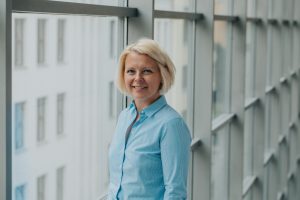
Dr hab. Karolina Kremens, LL.M. – the Head of the Incubator of Scientific Excellence – Digital Justice Center established in September 2021 at the Faculty of Law, Administration and Economics of the University of Wroclaw conducting multidisciplinary research on the impact of new technologies and artificial intelligence on the criminal process. Previously, she worked for ten years in the Department of Criminal Procedure at WPAiE UWr and from 2009 to 2012 she worked as an assessor in one of Wrocław’s district prosecutor’s offices. She was a Fulbright scholar (UCONN, USA) and a participant in the Edward Barry McDougall program (UOttawa, Canada) and the Vlamssee government scholarship (KU Leuven, Belgium). She has taught at European and North American universities, including Bologna, Exeter, Toledo, Dallas and Hartford. Author of dozens of publications in the field of Polish, international and comparative criminal trial, including the monograph Powers of the Prosecutor in Criminal Investigation: A Comparative Perspective (Routledge 2021). Manager and participant of national and international research projects. She heads the NCN project – Sonata-bis on the theory and practice of searches in a comparative legal perspective and in 2019-2022 she led the Polish research team in the EU project “Knowledge, Advisory and Capacity Building Information Tool for Criminal Procedural Rights in Judicial Cooperation” (CROSSJUSTICE) implemented with the participation of universities from Bologna, Florence, Turin and Leiden, among others. During the 2022/2023 academic year, she is staying as a Visiting Professor at the Faculty of Law at the University of Ottawa conducting research on the role of gender in the criminal process as a Bekker Fellow (NAWA).
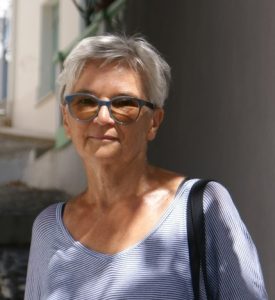
Prof. dr hab. Elżbieta Skibińska – Romanist and Polish scholar. She works on the problems of translation from a cultural and socioliterary perspective. Author of numerous works on translation in the perspective of intercultural mediation, including articles in foreign and Polish journals (Target, inTRAlinea, Translation Studies, Teksty Drugie, Pamiętnik Literacki) and monographs Translation and Culture. Cultural Elements in French Translations of “Pan Tadeusz” and The Translator’s Kitchen. She studies on Polish-French translation relations. Editor of collective monographic volumes on translation, including: Gombrowicz and Translators; Konwicki and Translators; Lem and Translators; Translator’s Footnotes; Vingt-cinq ans après… Traduire dans une Europe en reconfiguration; La voix du traducteur à l’école / The Translator’s Voice at School. Co-founder (1995) and coordinator of the work of the international team Traduction comme moyen de communication interculturelle (Lille, Wroclaw, Krakow, Mulhouse). She is the participant of the international project TranslAtWar – Literary Translation at War (Mapping WW2 in Europe 1939-45), ERC Advanced Grant (2022). Editor-in-chief of the journal Romanica Wratislaviensia (since 2003). Head of Stationary Doctoral Studies of the Faculty of Philology and Doctoral College of the Faculty of Philology. Head of the Department of Linguistics (2000-2013) and Translatology (2013-2020) at the Institute of Romance Philology, University of Wroclaw. Visiting Professor at the University of Lille 3 (2006, ac. year 2009/10; 2018). Member of the Team of Experts of the National Science Center, chair of the panel (editions 3-8 of the Prelude competition). Member of international expert teams appointed to evaluate study programs by the Center for Quality Assessment in Higher Education in Lithuania (2012, 2013, 2015, 2020) and by the Hellenic Authority for Higher Education (2021, 2022). Multiple member of international committees in university promotion proceedings in Greece (since 2014).
Composition of the Council in the years 01.2020-12.2022 (HS)
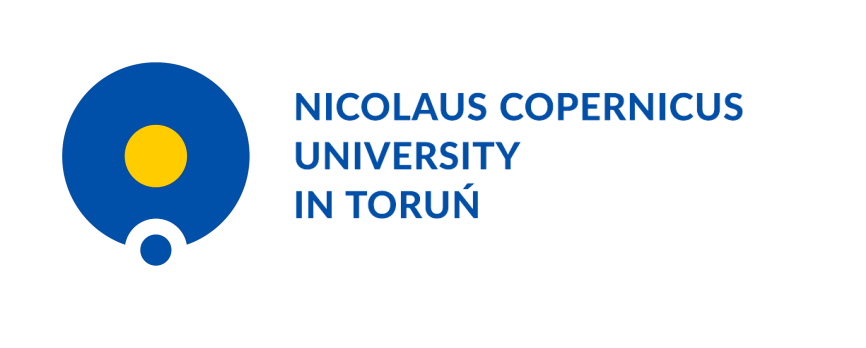
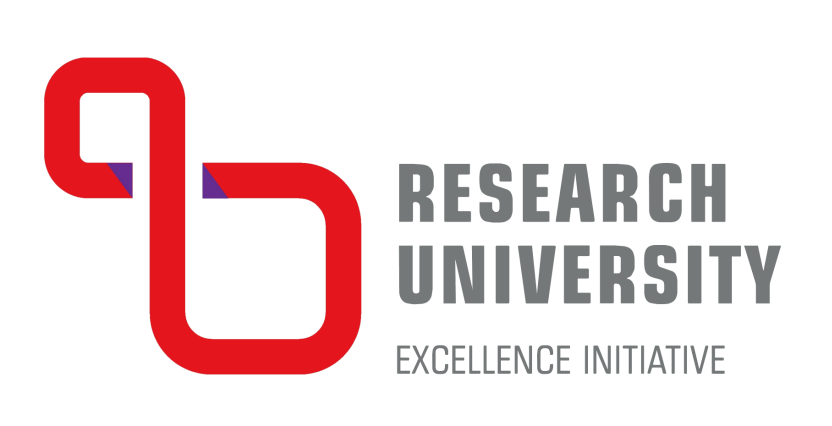
 ul. Gagarina 7, 87-100 Toruń
ul. Gagarina 7, 87-100 Toruń